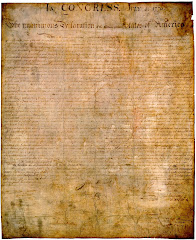Paul Gottfried | Taki's Magazine | June 01, 2008

The following is the first installment in a three-part critical symposium on Patrick Buchanan’s Churchill, Hitler, and the “Unnecessary War.”
It is not surprising that Pat Buchanan’s new book, exploring the collapse of the British Empire and the connection of that disaster to England’s involvement in two world wars, should have received a strong endorsement from George F. Kennan, written (it might be surmised) shortly before this luminary’s death at the age of a hundred and one. Although Kennan praises Pat specifically for taking over and developing his argument that “the British guaranty to Poland [in 1939] was neither necessary nor wise,” there is little in Pat’s work that is not traceable to this once celebrated American exponent of political realism. There are other historians whom Pat cites, such as Giles MacDonogh, Thomas Fleming, John Charmley and my close friend Ralph Raico, all of whom have written critically about Churchill. But his main guide to enlightenment is Kennan. Moreover, the work by this author and onetime American ambassador to Russia that fuels Pat’s “revisionist” arguments, concerning the misuse of British power, the overly close connection between the U.S. and Britain, and the overextension of English participation in continental European conflicts, is Kennan’s American Diplomacy 1900-1950, a work that was first published in 1951.
It is not surprising that Pat Buchanan’s new book, exploring the collapse of the British Empire and the connection of that disaster to England’s involvement in two world wars, should have received a strong endorsement from George F. Kennan, written (it might be surmised) shortly before this luminary’s death at the age of a hundred and one. Although Kennan praises Pat specifically for taking over and developing his argument that “the British guaranty to Poland [in 1939] was neither necessary nor wise,” there is little in Pat’s work that is not traceable to this once celebrated American exponent of political realism. There are other historians whom Pat cites, such as Giles MacDonogh, Thomas Fleming, John Charmley and my close friend Ralph Raico, all of whom have written critically about Churchill. But his main guide to enlightenment is Kennan. Moreover, the work by this author and onetime American ambassador to Russia that fuels Pat’s “revisionist” arguments, concerning the misuse of British power, the overly close connection between the U.S. and Britain, and the overextension of English participation in continental European conflicts, is Kennan’s American Diplomacy 1900-1950, a work that was first published in 1951.
When I was in college and later graduate school in the 1960s, this book was regularly assigned to undergraduates as an authoritative introduction to America’s role in international affairs in the 20th century. As Lee Congdon will surely explain in his forthcoming monograph, Kennan then enjoyed a certain cachet on the academic left as a critic of Cold War hawks, and he was even allowed to publish in the “anti-anti-Communist” New York Review of Books a tribute to the Prussian aristocracy that had tried to overthrow Hitler in 1944. By the 1980s Kennan had predictably come to rattle the neocons as someone who had never been particularly favorable to Israel and who had even shown the effrontery to warn against weakening the white minority government in South Africa. Despite Kennan’s mostly accidental association with the Left, the neocons, led by the sociologist Paul Hollander, correctly reminded us that Kennan was a reactionary—and certainly no friend of progressive democracy.
Read more...






